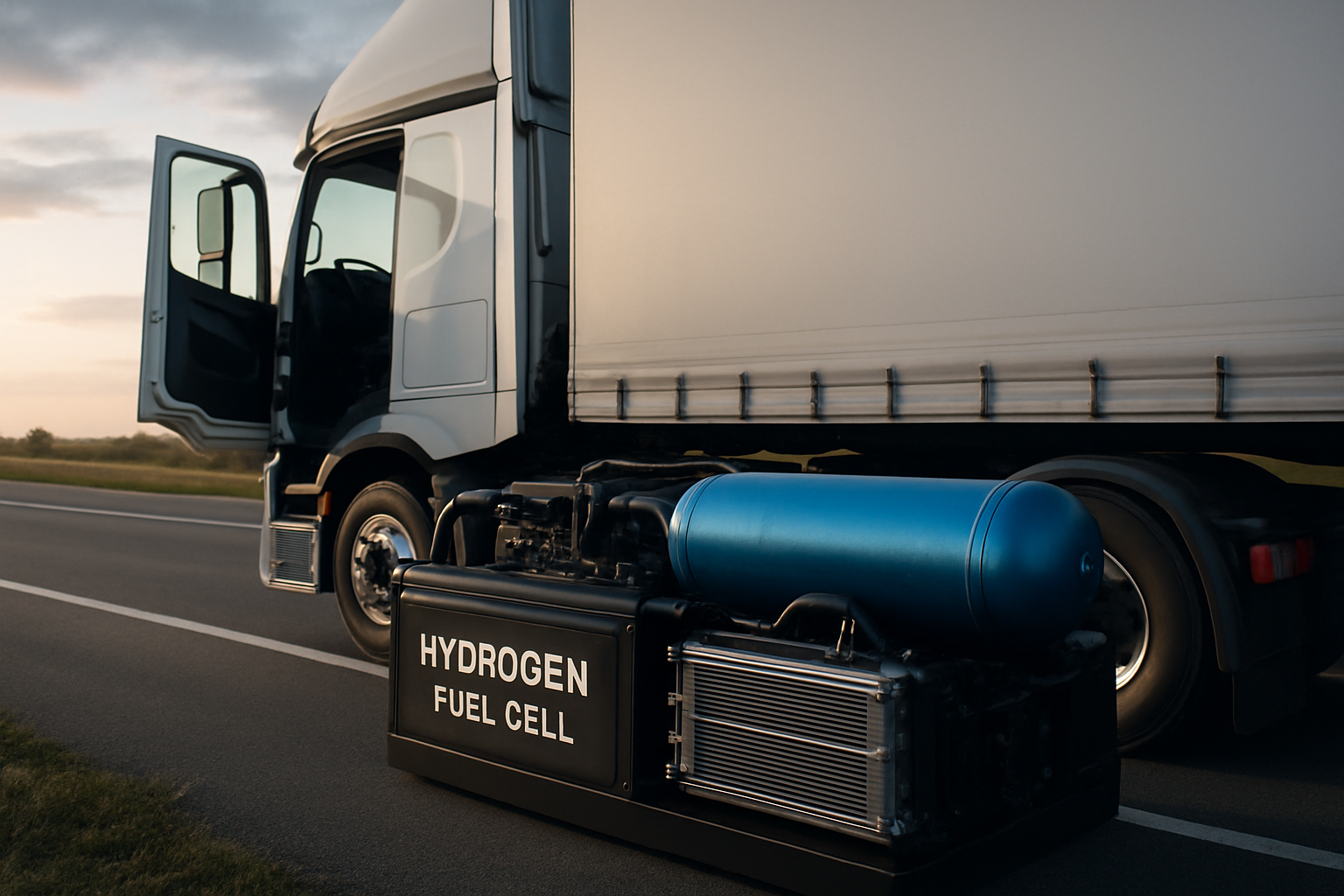Hydrogen Fuel Cells: The Quiet Revolution in Heavy-Duty Transportation
The world of heavy-duty transportation is on the cusp of a paradigm shift. As concerns about climate change and air pollution grow, the trucking industry is looking for cleaner alternatives to traditional diesel engines. Enter hydrogen fuel cells – a technology that promises to revolutionize long-haul trucking by offering zero-emission operation without compromising on range or payload capacity. This article delves into the world of hydrogen fuel cells in heavy-duty vehicles, exploring their potential to reshape the future of freight transportation.

This process is remarkably efficient, with fuel cells capable of converting up to 60% of hydrogen’s energy into electricity, compared to the 20-35% efficiency of internal combustion engines. Moreover, fuel cells have no moving parts, reducing maintenance needs and increasing reliability – crucial factors for the demanding world of long-haul trucking.
Advantages for Heavy-Duty Transportation
The benefits of hydrogen fuel cells for heavy-duty vehicles are numerous. First and foremost is the environmental impact – fuel cell trucks emit only water vapor, dramatically reducing air pollution and greenhouse gas emissions. This is particularly important in urban areas and along major transportation corridors, where diesel emissions have long been a significant health concern.
Range is another crucial advantage. While battery-electric trucks struggle with limited range and long charging times, hydrogen fuel cell trucks can be refueled in minutes and offer ranges comparable to diesel trucks. This makes them ideal for long-haul routes where downtime must be minimized.
Payload capacity is yet another area where fuel cell trucks shine. The fuel cell system is lighter than the massive battery packs required for long-range electric trucks, allowing for greater cargo capacity without exceeding weight limits. This efficiency is critical in an industry where every pound of cargo translates to revenue.
Challenges and Infrastructure Development
Despite their promise, hydrogen fuel cell trucks face significant challenges. The most pressing is the lack of refueling infrastructure. While diesel stations are ubiquitous, hydrogen fueling stations are scarce. Building out this infrastructure will require substantial investment and coordination between government agencies, energy companies, and trucking firms.
Production and distribution of hydrogen itself present another hurdle. Currently, most hydrogen is produced from natural gas through a process called steam methane reforming, which still results in carbon emissions. For truly zero-emission operation, green hydrogen produced through electrolysis powered by renewable energy is needed. Scaling up this production and creating an efficient distribution network is a complex and costly endeavor.
Cost remains a significant barrier to widespread adoption. Fuel cell systems and hydrogen fuel are currently more expensive than diesel engines and fuel. However, as production scales up and technology improves, these costs are expected to decrease dramatically over the next decade.
Real-World Applications and Pilot Programs
Despite these challenges, several major truck manufacturers and logistics companies are investing heavily in hydrogen fuel cell technology. Pilot programs are underway in various parts of the world, testing the viability of fuel cell trucks in real-world conditions.
In Europe, a consortium of truck manufacturers is working on the H2Haul project, which aims to deploy 16 heavy-duty fuel cell trucks across four countries. These trucks will operate in real-world logistics operations, providing valuable data on performance, reliability, and cost-effectiveness.
In the United States, companies like Nikola and Hyundai are developing fuel cell trucks and partnering with logistics firms to test them in commercial operations. These programs are not only proving the technology’s viability but also helping to identify and address challenges in real-world implementation.
The Road Ahead: Integration and Ecosystem Development
For hydrogen fuel cell trucks to succeed, a holistic approach is necessary. This includes not only developing the vehicles themselves but also creating an entire ecosystem to support them. This ecosystem encompasses hydrogen production, distribution, and refueling infrastructure, as well as maintenance and service networks.
Governments will play a crucial role in this transition through policy support, incentives, and investment in infrastructure. Many countries are already including hydrogen in their long-term energy strategies, recognizing its potential in decarbonizing heavy transportation.
The trucking industry itself is also evolving to embrace this technology. Fleet operators are beginning to consider total cost of ownership rather than just upfront costs, factoring in lower maintenance needs and potential fuel savings over the life of the vehicle.
As we look to the future, the potential of hydrogen fuel cells in heavy-duty transportation is immense. While challenges remain, the technology offers a promising path towards cleaner, more efficient long-haul trucking. As pilot programs expand and infrastructure develops, we may soon see hydrogen-powered trucks becoming a common sight on our highways, quietly revolutionizing the way we move goods across vast distances.






